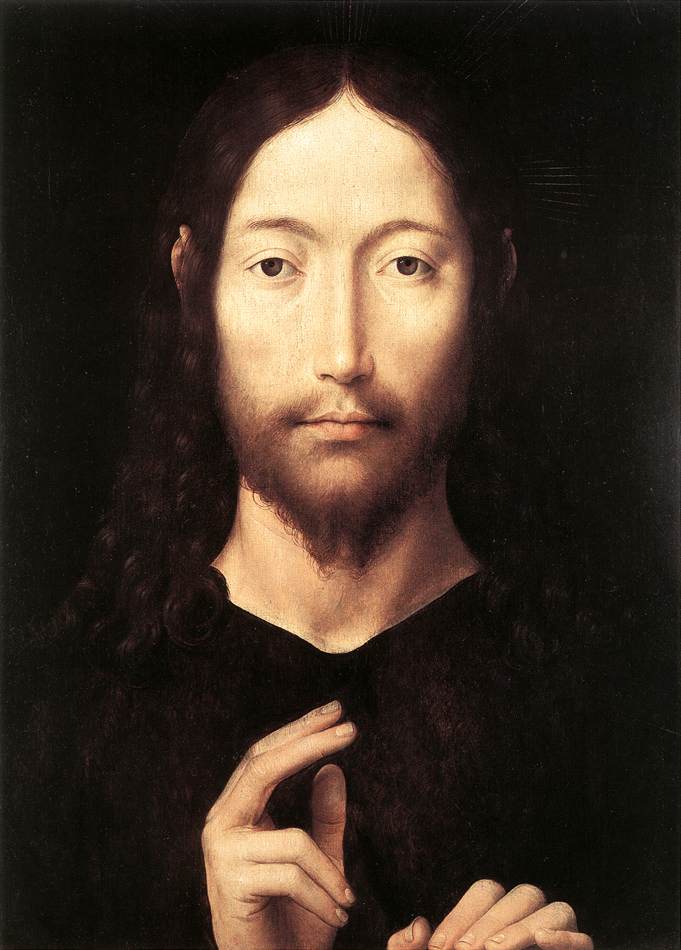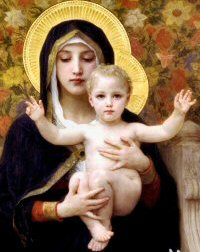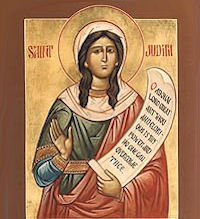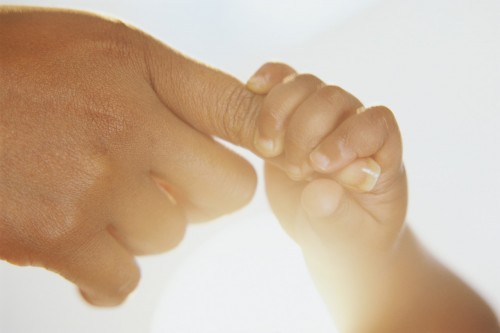 |
Just A Minute (Listen) Some of EWTN's most popular hosts and guests in a collection of one minute inspirational messages. A different message each time you click. |
Posted on 05/04/2015 10:10:07 PM PDT by Salvation
May 5, 2015
Tuesday of Fifth Week of Easter
Reading 1 Acts 14:19-28
In those days, some Jews from Antioch and Iconium
arrived and won over the crowds.
They stoned Paul and dragged him out of the city,
supposing that he was dead.
But when the disciples gathered around him,
he got up and entered the city.
On the following day he left with Barnabas for Derbe.
After they had proclaimed the good news to that city
and made a considerable number of disciples,
they returned to Lystra and to Iconium and to Antioch.
They strengthened the spirits of the disciples
and exhorted them to persevere in the faith, saying,
“It is necessary for us to undergo many hardships
to enter the Kingdom of God.”
They appointed presbyters for them in each Church and,
with prayer and fasting, commended them to the Lord
in whom they had put their faith.
Then they traveled through Pisidia and reached Pamphylia.
After proclaiming the word at Perga they went down to Attalia.
From there they sailed to Antioch,
where they had been commended to the grace of God
for the work they had now accomplished.
And when they arrived, they called the Church together
and reported what God had done with them
and how he had opened the door of faith to the Gentiles.
Then they spent no little time with the disciples.
Responsorial Psalm PS 145:10-11, 12-13ab, 21
R. (see 12) Your friends make known, O Lord, the glorious splendor of your kingdom.
or:
R. Alleluia.
Let all your works give you thanks, O LORD,
and let your faithful ones bless you.
Let them discourse of the glory of your kingdom
and speak of your might.
R. Your friends make known, O Lord, the glorious splendor of your kingdom.
or:
R. Alleluia.
Making known to men your might
and the glorious splendor of your kingdom.
Your kingdom is a kingdom for all ages,
and your dominion endures through all generations.
R. Your friends make known, O Lord, the glorious splendor of your kingdom.
or:
R. Alleluia.
May my mouth speak the praise of the LORD,
and may all flesh bless his holy name forever and ever.
R. Your friends make known, O Lord, the glorious splendor of your kingdom.
or:
R. Alleluia.
Alleluia See Lk 24:46, 26
R. Alleluia, alleluia.
Christ had to suffer and to rise from the dead,
and so enter into his glory.
R. Alleluia, alleluia.
Gospel Jn 14:27-31a
Jesus said to his disciples:
“Peace I leave with you; my peace I give to you.
Not as the world gives do I give it to you.
Do not let your hearts be troubled or afraid.
You heard me tell you,
‘I am going away and I will come back to you.’
If you loved me,
you would rejoice that I am going to the Father;
for the Father is greater than I.
And now I have told you this before it happens,
so that when it happens you may believe.
I will no longer speak much with you,
for the ruler of the world is coming.
He has no power over me,
but the world must know that I love the Father
and that I do just as the Father has commanded me.”
 |
Just A Minute (Listen) Some of EWTN's most popular hosts and guests in a collection of one minute inspirational messages. A different message each time you click. |
This prayer, which dates from the twelfth century, is substituted for the Angelus during Easter Season.
In Latin |
In English |
|
Regina coeli, laetare, alleluia: Quia quem meruisti portare, alleluia. Resurrexit sicut dixit, alleluia. Ora pro nobis Deum, alleluia.
V. Gaude et laetare, Virgo Maria, Alleluia, R. Quia surrexit Dominus vere, alleluia.
Oremus: Deus qui per resurrectionem Filii tui, Domini nostri Iesu Christi, mundum laetificare dignatus es: praesta, quaesumus, ut per eius Genetricem Virginem Mariam, perpetuae capiamus gaudia vitae. Per eundem Christum Dominum nostrum. R. Amen. |
Queen of Heaven rejoice, alleluia: For He whom you merited to bear, alleluia, Has risen as He said, alleluia. Pray for us to God, alleluia.
V. Rejoice and be glad, O Virgin Mary, alleluia. R. Because the Lord is truly risen, alleluia.
Let us pray: O God, who by the Resurrection of Thy Son, our Lord Jesus Christ, granted joy to the whole world: grant we beseech Thee, that through the intercession of the Virgin Mary, His Mother, we may lay hold of the joys of eternal life. Through the same Christ our Lord. R. Amen. |
“Peace I leave with you; my peace I give to you. Not as the world gives do I give it to you. Do not let your hearts be troubled or afraid.
I will no longer speak much with you, for the ruler of the world is coming.
| John | |||
| English: Douay-Rheims | Latin: Vulgata Clementina | Greek NT: Byzantine/Majority Text (2000) | |
| John 14 |
|||
| 27. | Peace I leave with you, my peace I give unto you: not as the world giveth, do I give unto you. Let not your heart be troubled, nor let it be afraid. | Pacem relinquo vobis, pacem meam do vobis : non quomodo mundus dat, ego do vobis. Non turbetur cor vestrum, neque formidet. | ειρηνην αφιημι υμιν ειρηνην την εμην διδωμι υμιν ου καθως ο κοσμος διδωσιν εγω διδωμι υμιν μη ταρασσεσθω υμων η καρδια μηδε δειλιατω |
| 28. | You have heard that I said to you: I go away, and I come unto you. If you loved me, you would indeed be glad, because I go to the Father: for the Father is greater than I. | Audistis quia ego dixi vobis : Vado, et venio ad vos. Si diligeretis me, gauderetis utique, quia vado ad Patrem : quia Pater major me est. | ηκουσατε οτι εγω ειπον υμιν υπαγω και ερχομαι προς υμας ει ηγαπατε με εχαρητε αν οτι ειπον πορευομαι προς τον πατερα οτι ο πατηρ μου μειζων μου εστιν |
| 29. | And now I have told you before it comes to pass: that when it shall come to pass, you may believe. | Et nunc dixi vobis priusquam fiat : ut cum factum fuerit, credatis. | και νυν ειρηκα υμιν πριν γενεσθαι ινα οταν γενηται πιστευσητε |
| 30. | I will not now speak many things with you. For the prince of this world cometh, and in me he hath not any thing. | Jam non multa loquar vobiscum : venit enim princeps mundi hujus, et in me non habet quidquam. | ουκετι πολλα λαλησω μεθ υμων ερχεται γαρ ο του κοσμου αρχων και εν εμοι ουκ εχει ουδεν |
| 31. | But that the world may know, that I love the Father: and as the Father hath given me commandment, so do I: Arise, let us go hence. | Sed ut cognoscat mundus quia diligo Patrem, et sicut mandatum dedit mihi Pater, sic facio. Surgite, eamus hinc. | αλλ ινα γνω ο κοσμος οτι αγαπω τον πατερα και καθως ενετειλατο μοι ο πατηρ ουτως ποιω εγειρεσθε αγωμεν εντευθεν |

**“It is necessary for us to undergo many hardships to enter the Kingdom of God.”**
A lot of people want to forget this.
“Pick up your Cross and follow me.” said Christ.
St. Judith of Prussia
Feast Day: May 05
Died: 1260
St. Judith was born at Sangerhausen in Thuringia which is now central Germany. Her family was rich but she wanted to follow the example of St. Elizabeth of Hungary. In St. Judith's time, many Christian women were influenced by her inspiring example.
When she was just fifteen, Judith was married to a wealthy young nobleman. She tried to be a good Christian wife and was very generous with the poor. Her husband was a good man, but he was happy with his rich and comfortable life.
He also wanted his wife to dress and live like a rich woman so that people would respect them. But Judith gently made him realize that they would have more to give to people less fortunate than themselves if they lived and dressed more simply.
Then Judith's husband died suddenly while he was on a pilgrimage to the Holy Land. As a young widow Judith raised her children alone. When the children grew up and didn't need her help any longer, Judith finally gave in to a longing that had been hidden in her heart even during the busy, happy days of her life.
She sold everything she had and moved to Prussia where people would not know that she was from a wealthy family. There she lived as a hermit in a little hut and spent her time praying and taking care of weary travelers who passed by.
She prayed especially for nonbelievers to come to Jesus in faith. She prayed also for the newly baptized Christians to be true to their faith.
"Three things can lead us close to God," she once said. "They are painful physical suffering, being in exile in a foreign land, and being poor by choice because of love for God."
St. Judith died of fever in 1260 at Kulmsee in Prussia. She was named the patroness of Prussia.
Tuesday, May 5
Liturgical Color: White
St. Angelus of Jerusalem is honored by the
Church today. He became a Carmelite,
converting many Jews in Sicily. In 1220, he
was martyred for denouncing an extramarital
affair of a local leader.
|
|
1 And when they drew near to Jerusalem, to Bethphage and Bethany, at the Mount of Olives, he sent two of his disciples, 2 and said to them, "Go into the village opposite you, and immediately as you enter it you will find a colt tied, on which no one has ever sat; untie it and bring it. 3 If any one says to you, Why are you doing this?' say, The Lord has need of it and will send it back here immediately.' " 4 And they went away, and found a colt tied at the door out in the open street; and they untied it. 5 And those who stood there said to them, "What are you doing, untying the colt?" 6 And they told them what Jesus had said; and they let them go. 7 And they brought the colt to Jesus, and threw their garments on it; and he sat upon it. 8 And many spread their garments on the road, and others spread leafy branches which they had cut from the fields. 9 And those who went before and those who followed cried out, "Hosanna! Blessed is he who comes in the name of the Lord! 10 Blessed is the kingdom of our father David that is coming! Hosanna in the highest!"
11 And he entered Jerusalem, and went into the temple; and when he had looked round at everything, as it was already late, he went out to Bethany with the Twelve.
12 On the following day, when they came from Bethany, he was hungry. 13 And seeing in the distance a fig tree in leaf, he went to see if he could find anything on it. When he came to it, he found nothing but leaves, for it was not the season for figs. 14 And he said to it, "May no one ever eat fruit from you again." And his disciples heard it.
the colt: Recalls the messianic prophecy of Zech 9:9. The colt in this oracle symbolizes the king's humility as he comes to Israel in "peace", not mounted on a "war horse" to lead a military strike against Rome (Zech 9:10). Jesus' entry into the city also recalls Solomon's procession into Jerusalem at his coronation as the King of Israel.
spread their garments: A symbolic gesture for honoring a newly crowned king (2 Kings 9:13).
-- Morally (St. Bede, In Marcum): the garments thrown under the colt signify the flesh of Christian martyrs, who lay down their lives for the gospel and so proclaim the Lordship of Jesus Christ.

Daily Readings for:May 05, 2015
(Readings on USCCB website)
Collect: O God, who restore us to eternal life in the Resurrection of Christ, grant your people constancy in faith and hope, that we may never doubt the promises of which we have learned from you. Through our Lord Jesus Christ, your Son, who lives and reigns with you in the unity of the Holy Spirit, one God, for ever and ever.
RECIPES
o Minced Chicken (or Turkey) a la King
ACTIVITIES
o Marian Hymn: Stella Matutina
PRAYERS
o Regina Coeli (Queen of Heaven)
o May Devotion: Blessed Virgin Mary
o Litany of the Blessed Virgin Mary (Litany of Loretto)
o Prayers for the Easter Season
· Easter: May 5th
· Tuesday of the Fifth Week of Easter
Old Calendar: St. Pius V, pope and confessor; St. Jutta (Hist)
Historically today is the feast of Bl. Jutta (Judith) of Russia. She was a Thuringian of a noble family whose husband lost his life crusading in the Holy Land, and who, after providing for her children, became a recluse. She is venerated as the patroness of Russia.
According to the 1962 Missal of St. John XXIII the Extraordinary Form of the Roman Rite, today is the feast of St. Pius V. His feast in the Ordinary Form of the Roman Rite is celebrated on April 30.
St. Jutta Jutta was of the noble family of Sangerhausen in Saxony. She married young, and her husband died on a pilgrimage to Palestine. She had several children, all of whom embraced a religious life, in various Orders. After the death of her husband, Jutta devoted herself for a time to the care of the sick, especially lepers, and was favored with visions.
Jutta was of the noble family of Sangerhausen in Saxony. She married young, and her husband died on a pilgrimage to Palestine. She had several children, all of whom embraced a religious life, in various Orders. After the death of her husband, Jutta devoted herself for a time to the care of the sick, especially lepers, and was favored with visions.
At that time Poland was over run by Tartars, Rutheni, and Lithuanians. They burnt Cracow, Sendomiria, and other cities, and twice within ten months choked up the river Vistula with Christian corpses. Prussia was devastated next. The Crucifers with difficulty saved their lives and liberties by taking refuge in the fortresses they held against the barbarians; while the natives who had but recently been baptized relapsed into paganism, joined the invaders, and massacred the priests and other Christians who dwelt among them. The aid the Christians sent for from Germany was long in coming.
It pleased God that Prussia and the adjacent province of Masovia should at this time receive a special protector and patron from Germany, in the person of St. Jutta. She came to Prussia in 1260, to lead a solitary and austere life in its thick and dark forests, while Boleslaw the Chaste and St. Cunegund were reigning in Poland. She chose for her dwelling a ruined building, not far from Culm, near a great pond or marsh called Bielczna. The neighbors observed that she was sometimes lifted up from the earth and suspended in the air while she prayed, and that when she went to the new church at Culm, she sometimes went through the wood a long way round, by the edge of the lake, and sometimes she walked straight across the water by a path which could still be seen after her death. She lived in great sanctity in the forest for four years, and died in 1264. Her friend and confessor, Henry, bishop of Culuza, wanted to bury her quietly according to her own inclination, but he could not prevent an immense concourse of people assembling from the surrounding country, so that such a multitude had never been seen in Culuza before. Thirteen priests were present at the funeral, a great number at that time, when none but missionaries had settled there, and most of those had been massacred by the barbarians.
She was buried in the Church of the Holy Trinity. Fifteen years afterwards, steps were taken for her canonization, in consequence of her great renown for sanctity and the numerous miracles wrought at her tomb.
Excerpted from A Dictionary of Saintly Women
5th Week of Easter
My peace I give to you. Not as the world gives do I give it to you. (John 14:27)
In the late nineteenth century, French artists experimented with a new technique in painting called pointillism. They used small dots of color to create pictures. Up close, dots are all you can see. But step back, and the picture becomes clear! Sometimes, our lives can be like that. Daily joys and problems, ups and downs, can loom large before our eyes. We get distracted by the chaotic or colorful or tragic moments. We lose our peace or get swept up into an unwarranted sense of excitement. We forget to step back and see the big picture.
The peace that Jesus promises us in today’s Gospel reading is not something we conjure up on our own. It doesn’t come from manipulating our circumstances so that nothing ruffles our feathers. It’s far more solid and reliable than that.
Look at Paul and Barnabas: they certainly had ups and downs! They were threatened with being stoned while in Iconium, so they moved to Lystra, where the people hailed them as gods. But these same people were easily swayed and attacked Paul, leaving him for dead. Then, escaping Lystra, Paul and Barnabas ended up making a “considerable number” of disciples elsewhere.
According to the world, these men should have felt anxious, not peaceful. But they didn’t. Writing years later, Paul said, “I know indeed how to live in humble circumstances; I know also how to live with abundance… . I have the strength for everything through him who empowers me” (Philippians 4:12, 13).
Will we face ups and downs? Fickle responses from people? Happiness interspersed with hardship? Yes. But we can still find peace in Christ.
How? By stepping back and looking at the big picture. Lean into the arms of the divine Artist who is painting the masterpiece of your life. The chaos and beauty will become clearer, and God’s vision will make more sense as you look beyond your changing circumstances and remember his love and provision. So today and every day, take a deep breath, and ask the Lord for his gift of peace.
“Jesus, you are my Prince of Peace!”
Acts 14:19-28; Psalm 145:10-13, 21
Daily Marriage Tip for May 5, 2015:
(Reader’s Tip): Only do those things that will be good for the other. This has given us a better outlook. We think more before we do something.
| Danger of Slavery | ||
|
||
|
May 5, 2015. Tuesday of the Fifth Week of Easter
|
||
|
|
||
|
By Father Patrick Langan, LC John 14: 27-31a Jesus said to his disciples: "Peace I leave with you; my peace I give to you. Not as the world gives do I give it to you. Do not let your hearts be troubled or afraid. You heard me tell you, ´I am going away and I will come back to you.´ If you loved me, you would rejoice that I am going to the Father; for the Father is greater than I. And now I have told you this before it happens, so that when it happens you may believe. I will no longer speak much with you, for the ruler of the world is coming. He has no power over me, but the world must know that I love the Father and that I do just as the Father has commanded me." Introductory Prayer: Lord, thank you for granting me the opportunity to be with you. There are things in life, Lord, that attract me, but you attract me more. I hope in you, and I love you. Maybe I don’t really understand what it means to love, and maybe I don’t love the way I should, but I do love you. Petition: Lord, help me always to remember who I am, where I come from, and where I am going.
Conversation with Christ: Lord, I have the bad habit of focusing on my doing. That is why I am always anxious. I want to be like you, Lord, seeing first who I am and letting my activity flow from that. This will bring me peace. However, Lord, I need your grace. Help me to live as a true son or daughter. Resolution: Today, I will do two kind acts to someone who is troubled in order to help them experience God’s love for them. |
May 5, 2015
This Gospel reading can show us our lack of trust unto the Lord. We often pray to God and ask for immediate answers and sometimes, we even ask for signs. “Please let there be a rainbow today if yes is the answer to my prayer.”
And yet when we see a rainbow, we convince ourselves that the answer is not a yes and the rainbow was just a coincidence. It is either because we try to manage our expectations or because we try to give comfort to ourselves when the sign seems unfavorable to us. We lack that sense of peace.
When will we learn to completely trust God? When will we stop asking for immediate answers every time we pray?
The signs that we seek are actually what we believe what God wanted to convey with us but in reality, we really do not know what God has planned for us. We often pray the Lord’s Prayer and part of it is telling God let not our will but thy will be done. There in his promises and through his words, we will truly find peace.
Lord, teach us how to trust you completely. Forgive us for worrying too much and for not being able to lift everything up to you. Give us the strength to continue carrying our own crosses. Help us understand why things happen. Teach us how to accept your will even if it sometimes is difficult and painful for us.
May we truly seek your peace in all that we do even if at times it seems like such a mystery to us. Please continue to console us with your loving presence. Hopefully, let us realize that real peace can only be found in you. May you continue to guide us in having a forgiving heart, in having an open mind, in letting ourselves become instruments of your peace.
Language: English | Español
All Issues > Volume 31, Issue 3
|
||||||||||||||||||||||||||||||||||||||||

Disclaimer: Opinions posted on Free Republic are those of the individual posters and do not necessarily represent the opinion of Free Republic or its management. All materials posted herein are protected by copyright law and the exemption for fair use of copyrighted works.